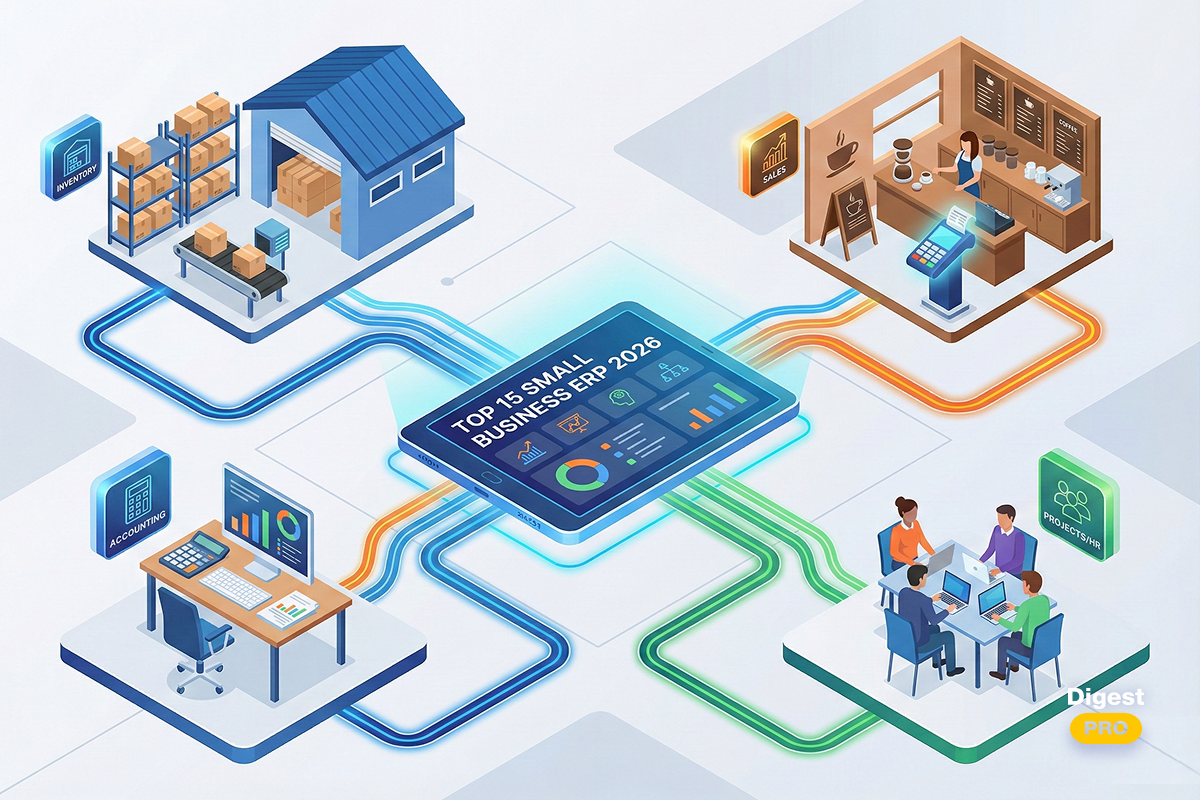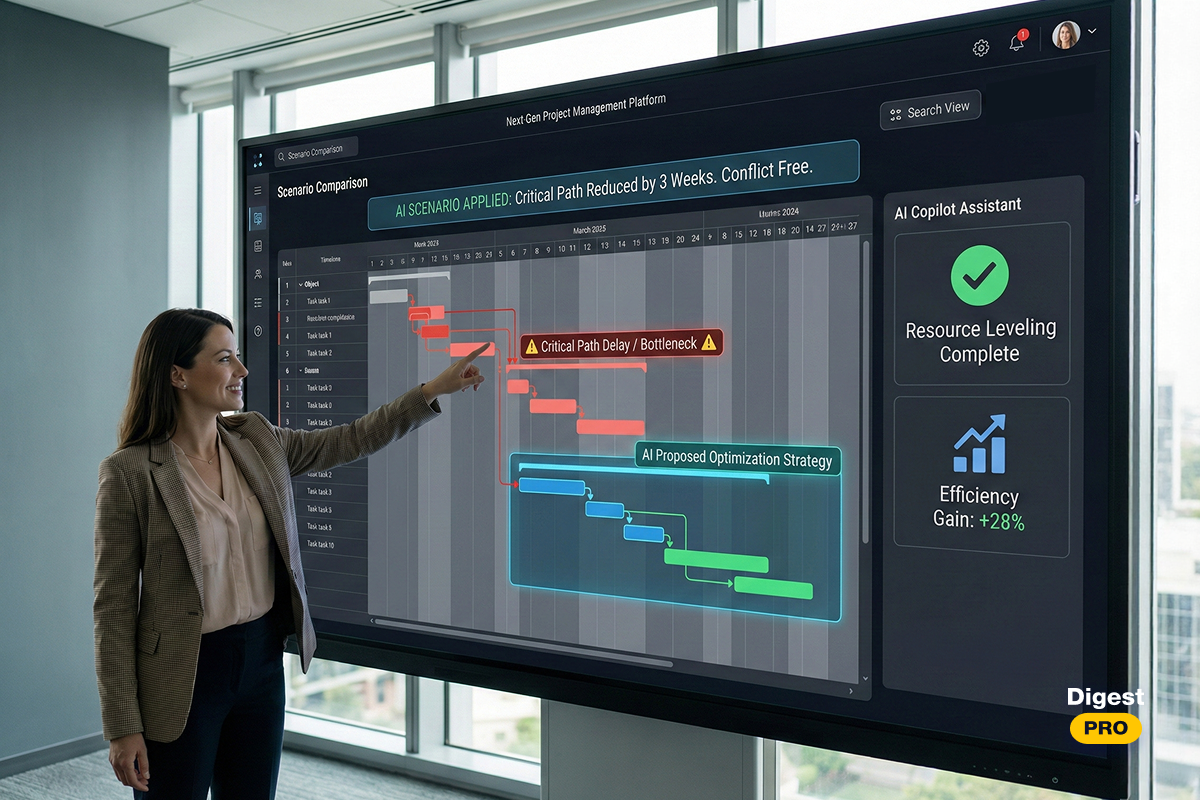
Artificial intelligence is developing faster than anyone could have imagined. In recent decades, large language models (LLM) have revolutionized the technical world, allowing users to create systems that can work autonomously, do repetitive jobs, make decisions faster, and reduce costs. These systems are called “AI agents”.
In this guide we will take a closer look at them, how they work and the benefits they offer.
What Are AI Agents?
AI agents are autonomous systems capable of perceiving their environment, making decisions, and doing some actions to achieve defined goals. Unlike traditional software systems that follow pre-programmed instructions, they are designed to operate independently and adjust their behaviour in real time, based on gained experience.
This makes them suitable for different dynamic tasks, for example, analyzing documents, generating creative ideas, or even coordinating multiple processes simultaneously.
Common Types of AI Agents
According to the article, there are 4 common types of AI agents:
- Reactive Agents, also called Simple Reflex Agents. These agents immediately respond to input or stimuli, based on predefined rules, but have no memory to learn or rely on previous experience.
- Memory-Based Agents. These agents employ complex memory structures that copy the work of the human brain and give responses in real time, based on experience.
- Goal-Based Agents. These agents have some predefined goal and can make some actions and decisions to reach it by using previous experience and making planning.
- Utility-Based Agents. These agents are advanced systems that make decisions by weighing different options with a utility function.
Other research also highlights the fifth one – Learning Agents. They are described as able to learn from past experiences and behave to improve productivity.
Key Components of AI Agents
Often, key components of an effective AI agent can be described as:
- Perception: How agents collect information from the environment.
- Reasoning: The process of interpretation and making decisions.
- Action: How an agent executes its decisions in the environment.
- Feedback Loop: The ability to learn and improve according to the feedback.
One more extremely important point is Autonomy – the ability to work without constant human control and intervention.
Benefits of AI Agents
Now you can hear about AI agents from every corner of the Internet. They have revolutionized the approach of developing smart systems. What benefits do they offer to potential users?
- Increased quality: decreasing the risk of human-factor errors and automating repetitive tasks improves efficiency;
- More reliable outputs: constant training and learning new information allows to get more accurate results;
- Data analysis: AI agents are able to analyse huge amounts of data, which gives the opportunity to spend time more efficiently;
- Scalability: scaling up AI agent systems can cost less and be more effective than hiring new specialists.
The ability to simplify complex jobs and increase efficiency makes them so outstanding and popular.
What Is Multi-Agent Orchestration?
Multi-agent orchestration is a process of managing multiple AI agents that work together on shared tasks. Orchestration ensures they collaborate effectively without conflicts.
There are 4 common multi-agent orchestration models:
- Sequential orchestration – it’s a queue of AI agents, where each agent performs its part of the work and gives output data to the next one in a strictly defined order.
- Concurrent orchestration – multiple agents are working simultaneously (in parallel) and, in the end, merge results.
- Group chat orchestration – multiple agents communicate in a shared channel, discussing ideas or debating.
- Handoff orchestration – using logic, experience and rules, agents dynamically decide who should take a task.
How to Build AI Agents with EpicStaff
EpicStaff is designed to make building and managing AI agents easier for both no-code people and technical users. Let’s take a closer look at 5 steps how to build AI agents with EpicStaff.
1. Create LLM model.
You can set configuration for the specific model (LLM, Embedded, Voice) using the API key of the preferred one or use the function “Quickstart” and set configuration for all models simultaneously.
2. Create AI agents.
After creating a model the next step is to create specific AI agents. You can set agent role, goal, backstory to simulate needed behaviour, and also attach previously created models to the agent, add in-built tools or create your own custom Python tools. There are also a huge number of advanced settings for high-level specialists.
3. Create a project.
Then you need to create a project and add created AI agents. There you can create tasks for agents, write instructions and explain expected output.
4. Create flow.
Then in the visual AI workflow builder you create the design of the system’s workflow. Here you can add your projects with AI agents, custom Python nodes, conditional nodes if needed and set sequence of execution process.
5. Run flow.
When the system’s design is finished you can finally run the build and get a response from the AI agents.
Common Challenges & How to Overcome Them
AI agents become a powerful tool with the right approach but their implementation often comes with obstacles. Here we will take a closer look at common AI agent challenges and how to overcome them:
1. Complex setup.
Many other frameworks for building AI agents require programming skills for proper set up and managing via code. To solve this problem EpicStaff enables easy installation through a browser-based installer.
2. Managing mutli-agent complexity.
When multiple agents work simultaneously you may face difficulties not only with finding bugs and errors, but also with managing interactions between those agents. By providing an intuitive graphic interface EpicStaff makes the development process easier, faster and more understandable.
3. High operational costs.
Orchestration AI agents often need multiple calls to large language models (LLM), which may be expensive for businesses of any scale. EpicStaff has a flexible orchestration mechanism, which helps to balance workloads and control API usage, reducing costs.
4. Unreliable outputs.
The AI area makes great strides in growing and innovating, but agents can still generate inaccurate answers. EpicStaff enables knowledge injection from external files or by providing custom Python tools, which helps to train it more and gain more accurate answers.
Read More: Enterprise AI Adoption Barriers: Why Most Enterprises Get Stuck with Digital Transformation
Best Practices in Using AI Agents

AI agents are already applied across multiple industries and have shown their effectiveness. Here are some of the best practices in using AI agents.
1. Research and data analysis.
AI agents can work with large datasets and give summaries or conclusions. It is the best way to save you money and time while working with reports, CRM systems, market analysis or writing articles.
2. Business support.
AI agents become helpers used in many business areas, for example, in marketing, human resources, logistics, healthcare, software development, education, etc. By providing fast and effective solutions based on learned information, they allow companies to automate processes and reduce costs.
3. Knowledge management.
Instead of searching for information through a large number of websites, users can ask agents to find relevant studies, reports, documentation and not waste time on actions that can be automated.
Read More: 10 n8n Alternatives: Best Workflow Automation Tools
Conclusion
AI agents are no longer just a product of imagination – they transform our world in real time. By imitating people’s behavior, they increase the quality of work, give more reliable responses, analyze huge amounts of data in seconds instead of days or even months, and reduce costs for businesses.
Platforms like EpicStaff allow non-technical people, programmers and businesses to develop their own AI solutions. Whether you are marketer, HR specialist, student, software developer, executive or business founder – there is an opportunity to integrate AI automation into your service.
Explore EpicStaff’s Github repository to start building AI agents and raise your projects to a new level.
FAQs
AI agents are autonomous systems capable of perceiving their environment, making decisions, and acting to achieve defined goals.
There are 4 common types of AI agents: Reactive Agents (Simple Reflex Agents), Memory-Based Agents, Goal-Based Agents, and Utility-Based Agents. Recent research studies also highlight the fifth type – Learning Agents.
Multi-agent orchestration is a process of managing multiple AI agents that work together on shared tasks. Orchestration ensures they collaborate effectively without conflicts.
















